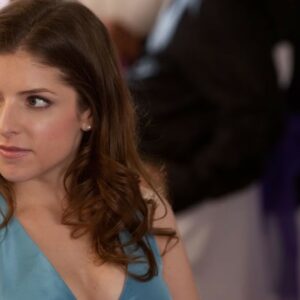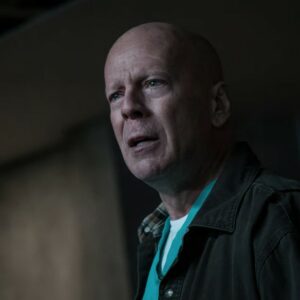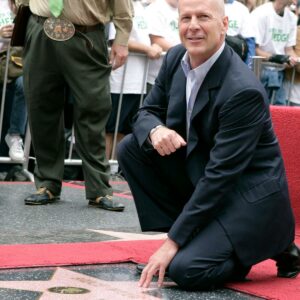In the world of cinema, few actors possess the quiet intensity and transformative ability of Cillian Murphy. From his haunting performance in 28 Days Later to his layered portrayal of Tommy Shelby in Peaky Blinders, Murphy has become a fixture in both indie and blockbuster films. Known for his meticulous craft and ability to disappear into roles, Murphy’s career has been marked by a commitment to exploring the human experience from various angles. Now, as the conversation around diversity in film takes center stage, Murphy is adding his voice to the growing chorus advocating for a more inclusive industry. He believes that diversity is not just an important element but a critical component for the future of film, contributing to richer storytelling and a more accurate reflection of society’s complexities.
Murphy’s View on Diversity in Film
For Murphy, diversity in film isn’t just a buzzword; it’s a necessity. In various interviews, he has spoken about the importance of embracing different perspectives in storytelling, arguing that films should mirror the diversity of the world we live in. Murphy sees diversity as a way to expand the boundaries of cinema, creating a more inclusive space where stories that have long been overlooked can finally be told.
“Diverse stories contribute to the richness and depth of films,” Murphy has said, “because they bring in perspectives that have historically been marginalized.” He emphasizes that a more inclusive film landscape is crucial for both artistic and societal reasons. “When you allow a broader range of voices to tell their stories, you get films that are not only more authentic but also more powerful,” he adds.
Murphy believes that diversity is essential for creating films that resonate on a deeper level with audiences. “People want to see themselves represented on screen,” he notes, “and when they do, it has a profound impact on how they perceive themselves and the world around them.” This is why he advocates for greater inclusion of underrepresented groups, both in front of and behind the camera. Murphy sees this as a necessary step toward creating a more equitable industry, one that truly reflects the diversity of global audiences.
The Role of Actors and Filmmakers in Promoting Diversity
Murphy’s views extend beyond the theoretical; he believes that actors and filmmakers have a tangible responsibility to promote diversity within the industry. As a performer, Murphy has often chosen roles that challenge the status quo, pushing boundaries and encouraging more diverse storytelling. He has spoken openly about the need for actors to use their platform to advocate for change, both in the roles they take on and the projects they support.
“I think it’s important for actors to be mindful of the stories they’re telling,” Murphy has said. “We have a responsibility to make sure that the stories we choose to be a part of are not perpetuating stereotypes but are instead contributing to a broader understanding of the world.” For Murphy, this means choosing roles that reflect the diversity of human experiences, rather than simply playing into familiar tropes.
Filmmakers, too, have a role to play. Murphy has often highlighted the importance of casting diverse actors in leading roles, noting that this can have a significant impact on audience perception. “When you see someone who looks like you on screen, it validates your existence in a way that’s really powerful,” he explains. Murphy believes that diverse casting can help break down barriers and create a more inclusive film industry, one where everyone has the opportunity to see their stories represented.
Diversity in Murphy’s Own Career
Murphy’s commitment to diversity is not just something he talks about; it’s something he practices. Throughout his career, he has been involved in a wide range of projects that reflect his belief in the importance of diverse storytelling. From working with directors from various backgrounds to tackling complex social issues, Murphy has consistently sought out roles that push the boundaries of traditional filmmaking.
One of the most notable examples of this is his work in The Wind That Shakes the Barley, a film that explores the political and social conflicts in Ireland during the early 20th century. The film, which was directed by Ken Loach, features a diverse cast and tackles themes of nationalism, rebellion, and social justice. Murphy’s portrayal of Damien O’Donovan, a young doctor turned revolutionary, is a powerful example of how diverse stories can contribute to the richness of cinema.
In addition to The Wind That Shakes the Barley, Murphy has been involved in several other projects that highlight his commitment to diversity. His work in Anthropoid, a film about the assassination of a high-ranking Nazi official during World War II, showcases his willingness to take on roles that explore different cultural and historical contexts. Similarly, his performances in films like Sunshine and Inception demonstrate his ability to collaborate with directors and casts from diverse backgrounds, contributing to projects that push the boundaries of traditional storytelling.
Murphy’s career is a testament to the power of diverse storytelling. By choosing roles that reflect a wide range of human experiences, he has not only broadened his own artistic horizons but has also contributed to the growing movement towards greater diversity in film.
The Future of Diversity in Film According to Murphy
Looking ahead, Murphy is optimistic about the future of diversity in film, but he also acknowledges that there is still much work to be done. In interviews, he has expressed his belief that the industry needs to continue making strides toward more equitable opportunities for underrepresented groups. “We’re moving in the right direction,” he says, “but we need to keep pushing for change.”
For Murphy, the future of film lies in its ability to truly reflect the diversity of its audience. He envisions a film landscape where stories from all walks of life are given equal weight and where everyone has the opportunity to see themselves represented on screen. “Diverse representation is not just about ticking boxes,” Murphy explains. “It’s about creating a film industry that is more inclusive, more reflective of the world we live in, and ultimately, more powerful.”
Murphy also believes that diverse representation is crucial for younger generations, who are growing up in an increasingly globalized and interconnected world. “The films we make today will shape how future generations see themselves and each other,” he says. “If we want to create a more inclusive society, we need to start with the stories we tell.”
In Murphy’s view, diversity is not just a trend; it’s the key to the future of film. By embracing diverse voices and stories, the industry can continue to grow and evolve, creating films that resonate with audiences on a deeper level. “The power of film lies in its ability to connect people,” Murphy notes. “And the more diverse our stories are, the more powerful that connection becomes.”
Conclusion
Cillian Murphy’s stance on diversity is clear: it is a critical factor in the evolution of the film industry. For Murphy, diverse stories and representation are not just about inclusion—they are about creating films that are richer, more authentic, and more impactful. His career, marked by roles that push the boundaries of traditional storytelling, reflects his belief in the power of diversity to transform cinema.
As the conversation around diversity in film continues to grow, Murphy’s voice is an important one. He reminds us that the stories we tell have the power to shape how we see the world—and that by embracing diversity, we can create a more inclusive and representative film landscape. His call to action is simple: keep pushing for change, keep advocating for diverse voices, and keep telling stories that reflect the world we live in. Because in the end, diversity is not just the future of film—it’s the key to its continued growth and relevance.





